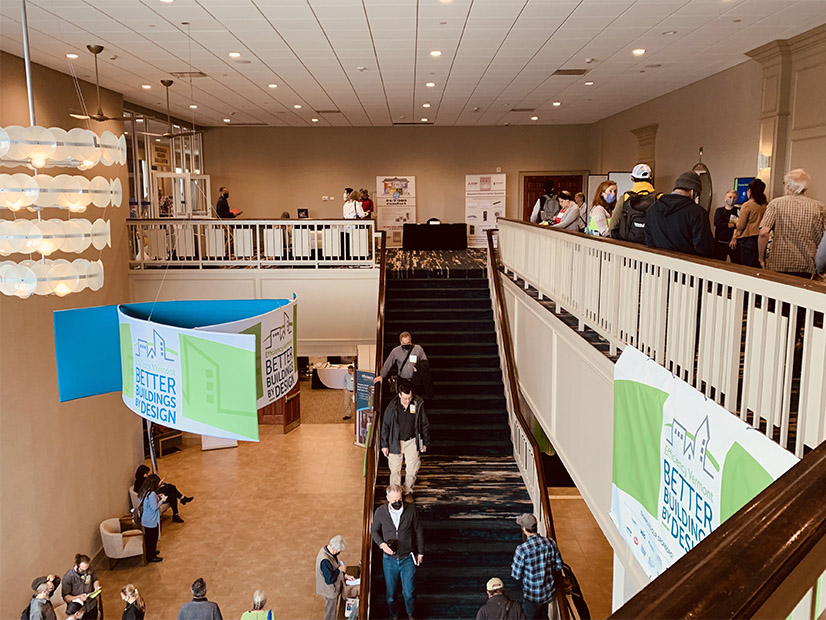
A first-of-its-kind weatherization ordinance for rental housing in effect in Burlington, Vt., since Jan. 1 is starting to ramp up enforcement for much needed efficiency measures.
The ordinance, which the City Council approved last year, will bring 750 rental properties into compliance with basic weatherization over the next five years, according to Christopher Burns, director of energy services at the Burlington Electric Department (BED), a municipally owned utility.
About 40 of the city’s most inefficient rental properties were targeted for compliance with the building code this year, Burns said Thursday during Efficiency Vermont’s Better Buildings by Design Conference.
Incentives for rental property owners to pay for weatherization measures have not worked over the years, according to Burns.
“Vermont Gas Systems for years was offering 50% off the cost of deep, really good weatherization to the same group, but there wasn’t the motivation to do it,” he said. “We frankly needed some muscle.”
That muscle comes in the form of penalties for noncompliance that are identical to those for other city building code requirements, such as smoke detectors. Property owners will receive a fine of $50 to $500/day for violating a provision of the code, which now applies to basic weatherization measures such as insulation and reduction of air leakage by windows and doors.
Burlington’s Department of Permitting and Inspections has already issued its first round of violations related to the weatherization ordinance, WCAX-TV reported last week.
Precedent
Enforcing weatherization of rental properties under a city housing code is unprecedented in the U.S., Jennifer Green, director of sustainability and workforce vitality at BED, told NetZero Insider. The approach, she said, builds on a previous time-of-sale weatherization ordinance that required efficiency upgrades when a building passed between owners. The ordinance was inconsistent because of sales patterns and did not “move the needle” as much as the city hoped, Green said.
Burlington’s net-zero-by-2030 goal, however, motivated city officials find a solution to what Burns calls the “split-incentive paradigm,” where rental property owners do not pay the energy bills for their buildings. Between 85 and 90% of renters in the city pay their natural gas and electric bills directly, he said.
“Utility practices are to encourage individual metering, because individual metering encourages conservation, but it also creates a split paradigm because now the owner doesn’t pay the bill,” Burns said.
Armed with solid natural gas usage data already in place from the time-of-sale ordinance and robust state and city weatherization program incentives, Burlington found a pathway under the housing code.
The ordinance applies to residential rental buildings that use more than 50,000 BTU/square foot/year for space heating through a phased approach. Buildings that use more than 90,000 had to demonstrate compliance at the start of this year. Additional buildings are phased in by usage each year through 2025.
Out-of-pocket expenses for property owners are capped at $2,500 per rental unit, excluding any weatherization program incentives. And if the cap is reached but a building is still not in compliance, owners can request a three-year extension, after which compliance is required no matter the cost.
Workforce Issues
Burlington uses its natural gas data to identify buildings that need to comply with the ordinance and then it notifies owners in advance of the compliance date. Owners are then responsible for enrolling in an existing weatherization program offered through the city or the state.
Despite the city’s desire to move quickly to make rental properties more efficient, Burns says Vermont has a worker shortage problem. There’s a six-month waiting list for Vermont Gas Systems’ weatherization program, so building owners need only demonstrate that they are on the waiting list to comply for now.
Getting through the entire process, including waiting for an initial audit and completing the weatherization work, could take “a couple of years,” Burns said.


